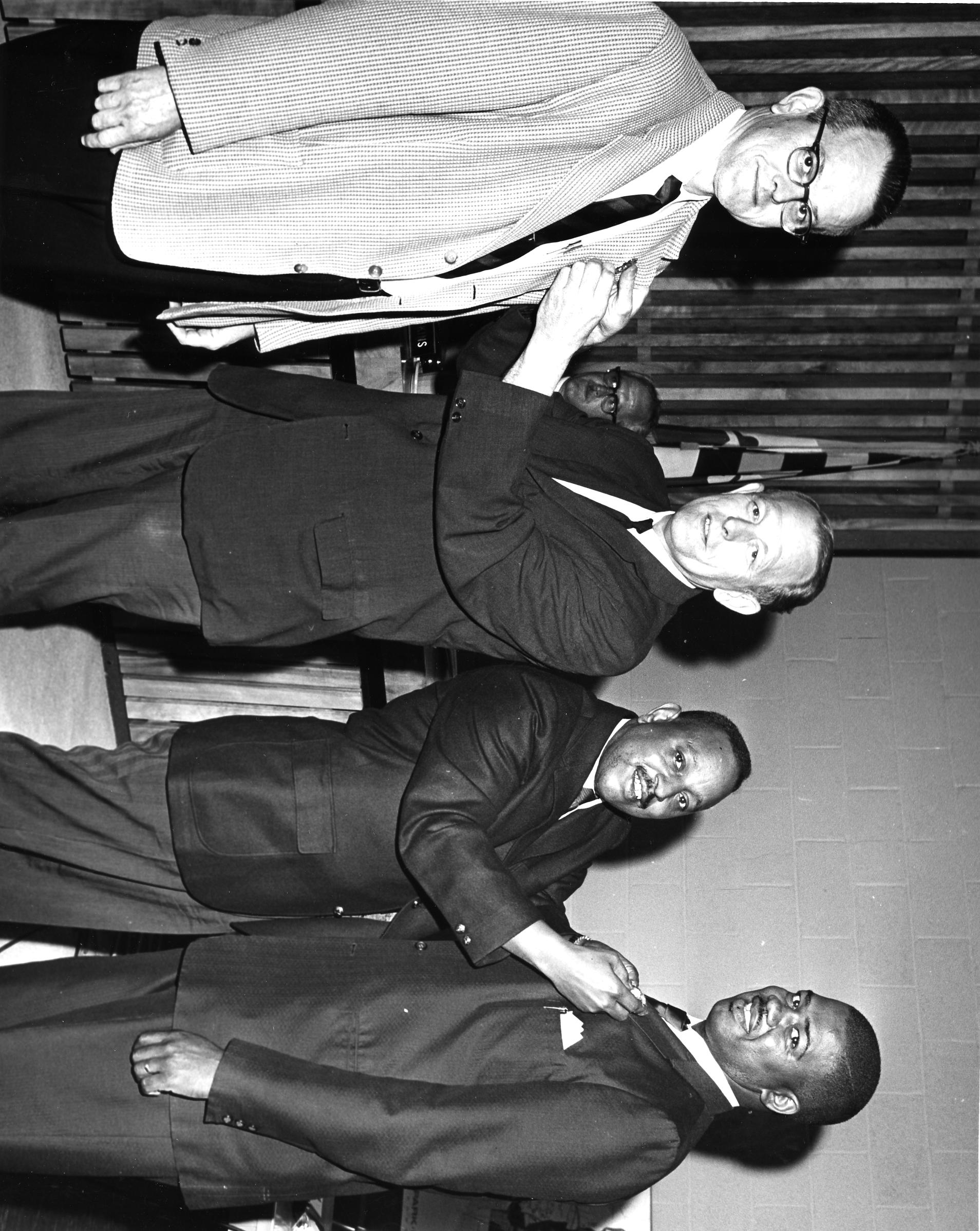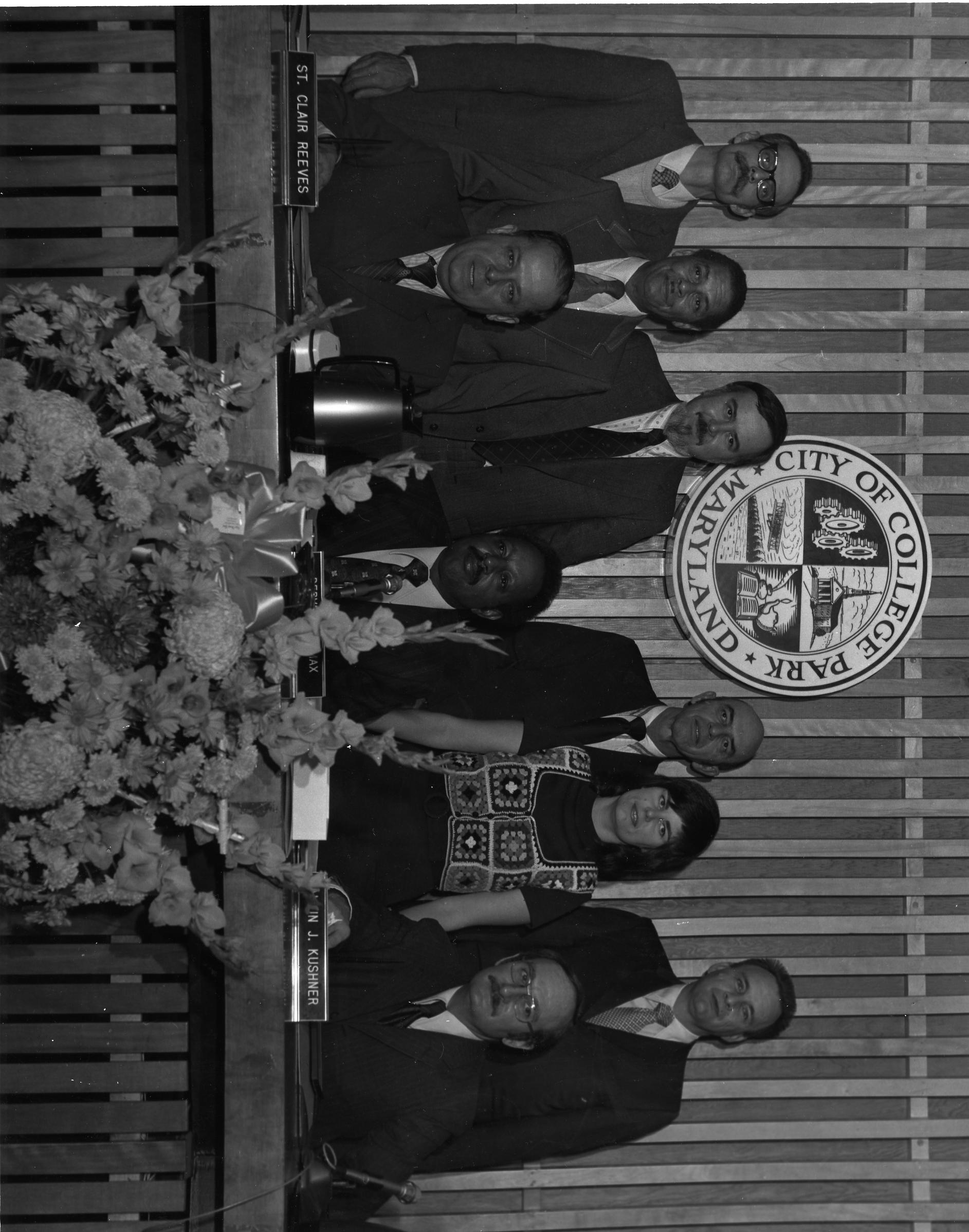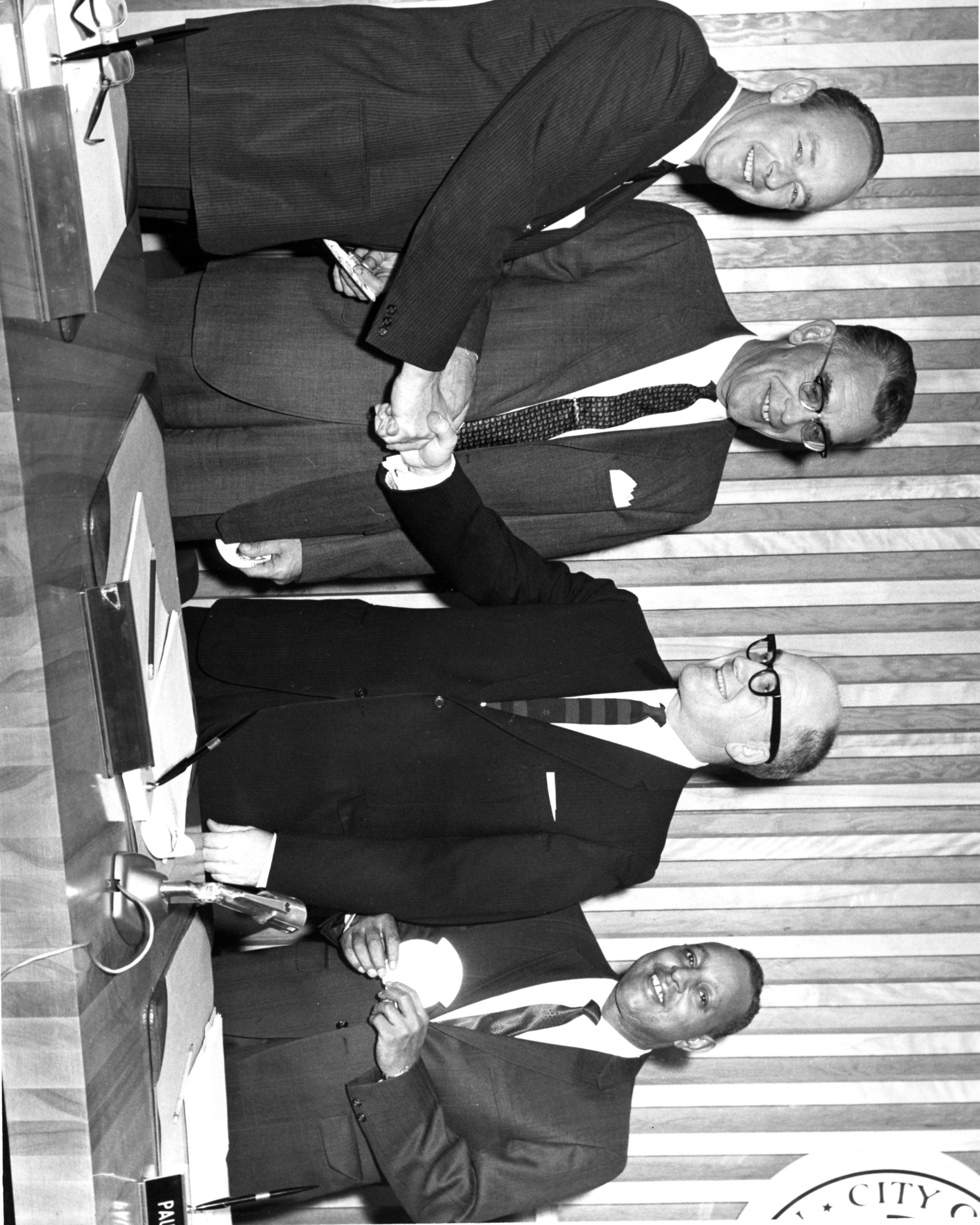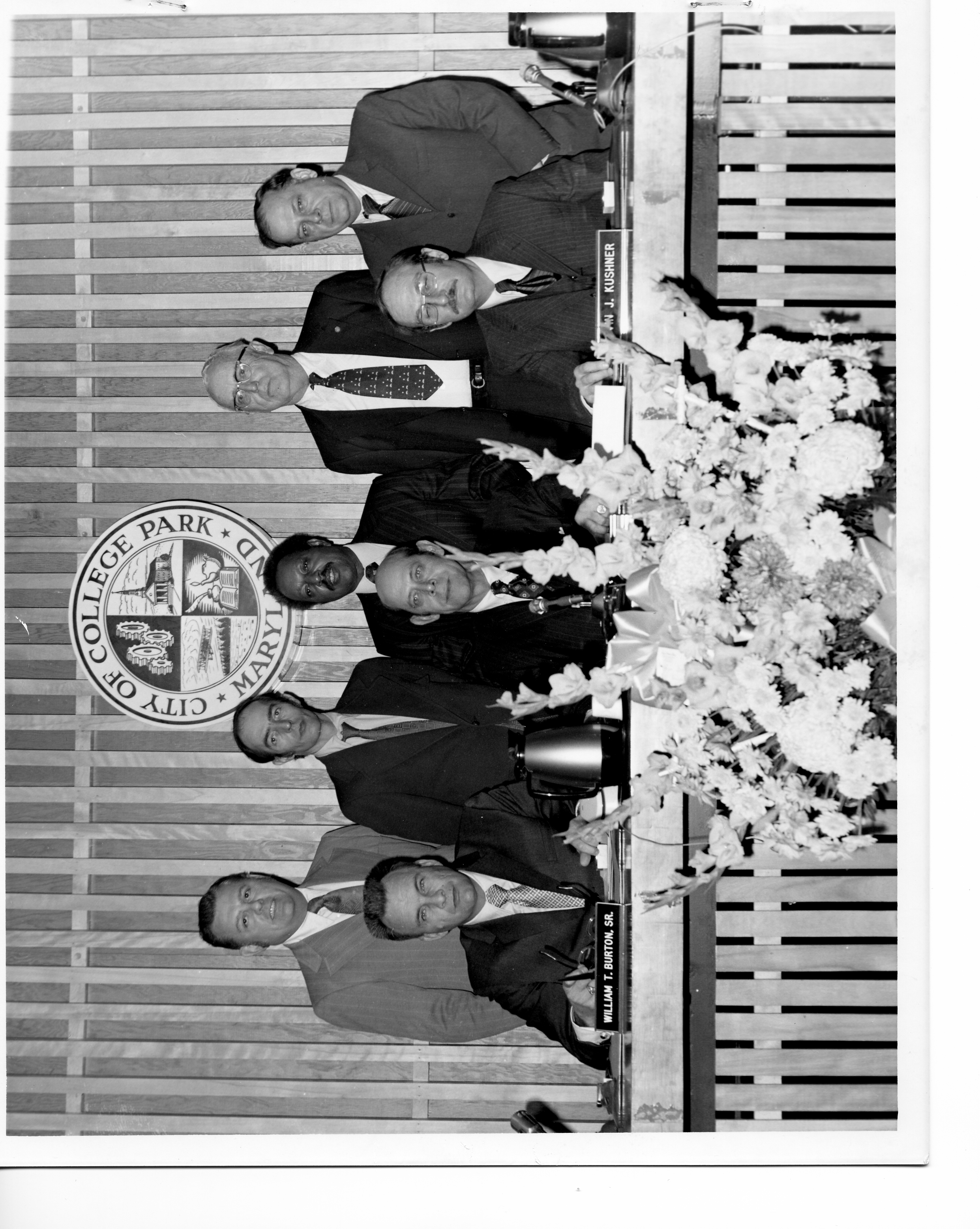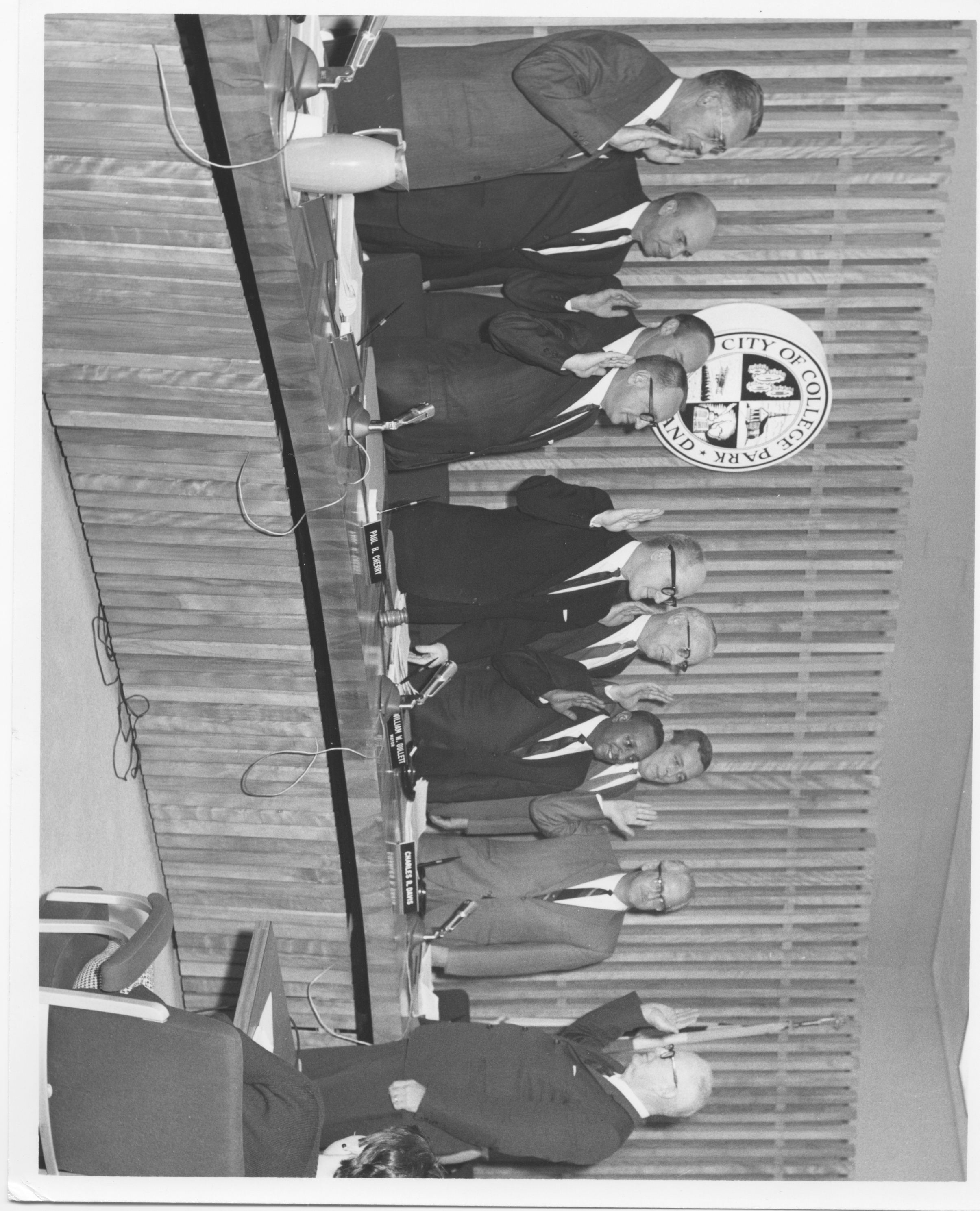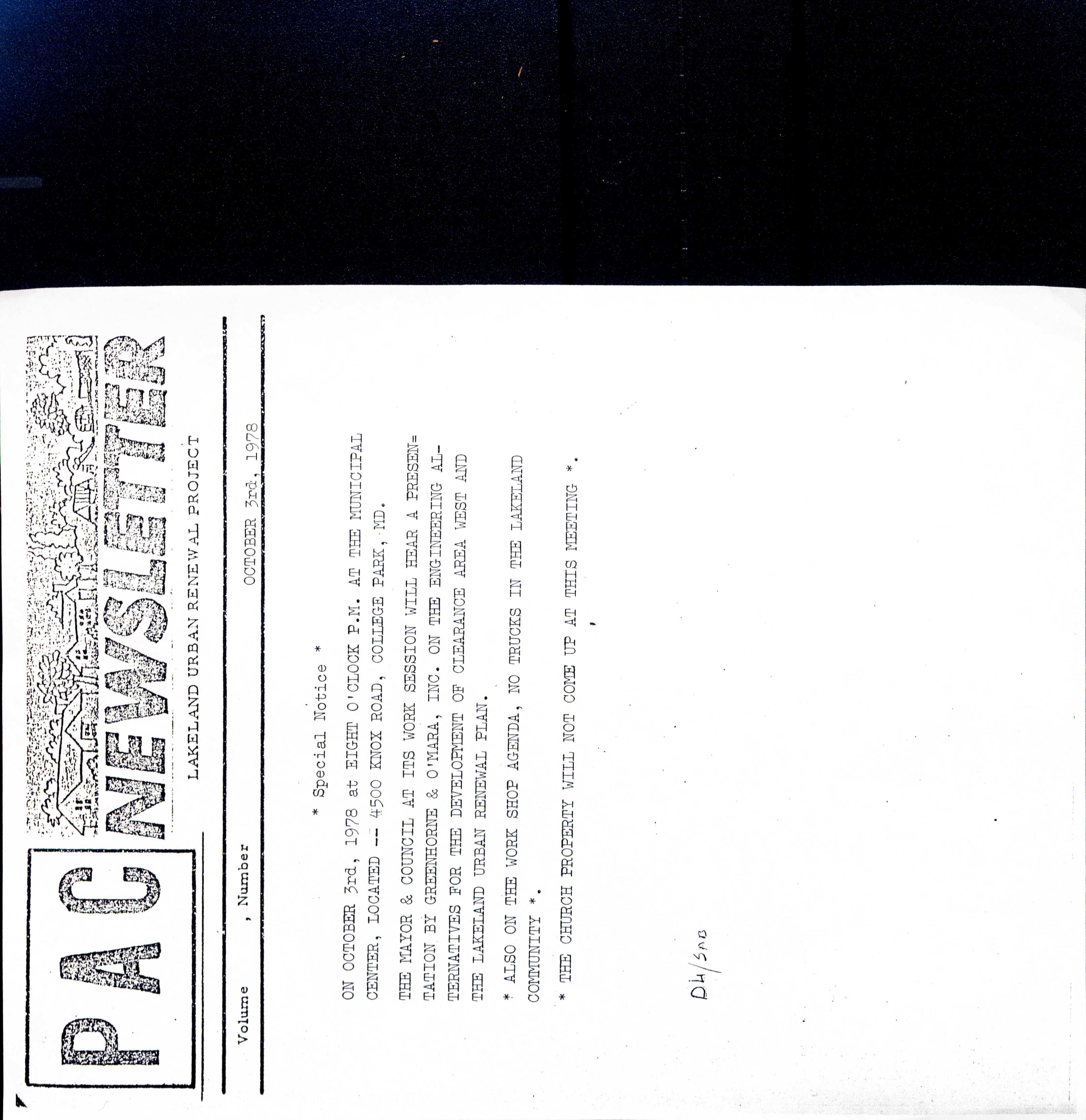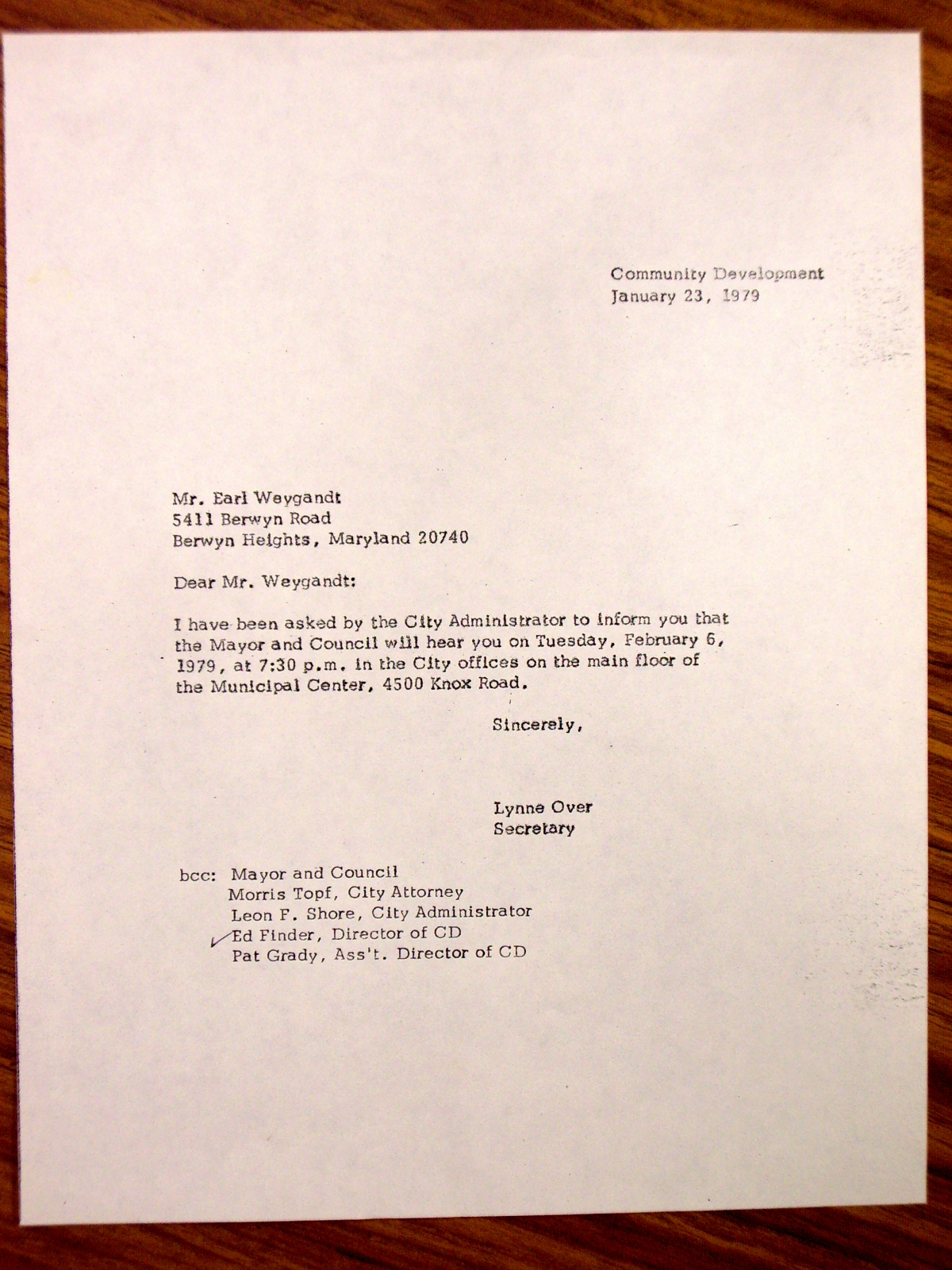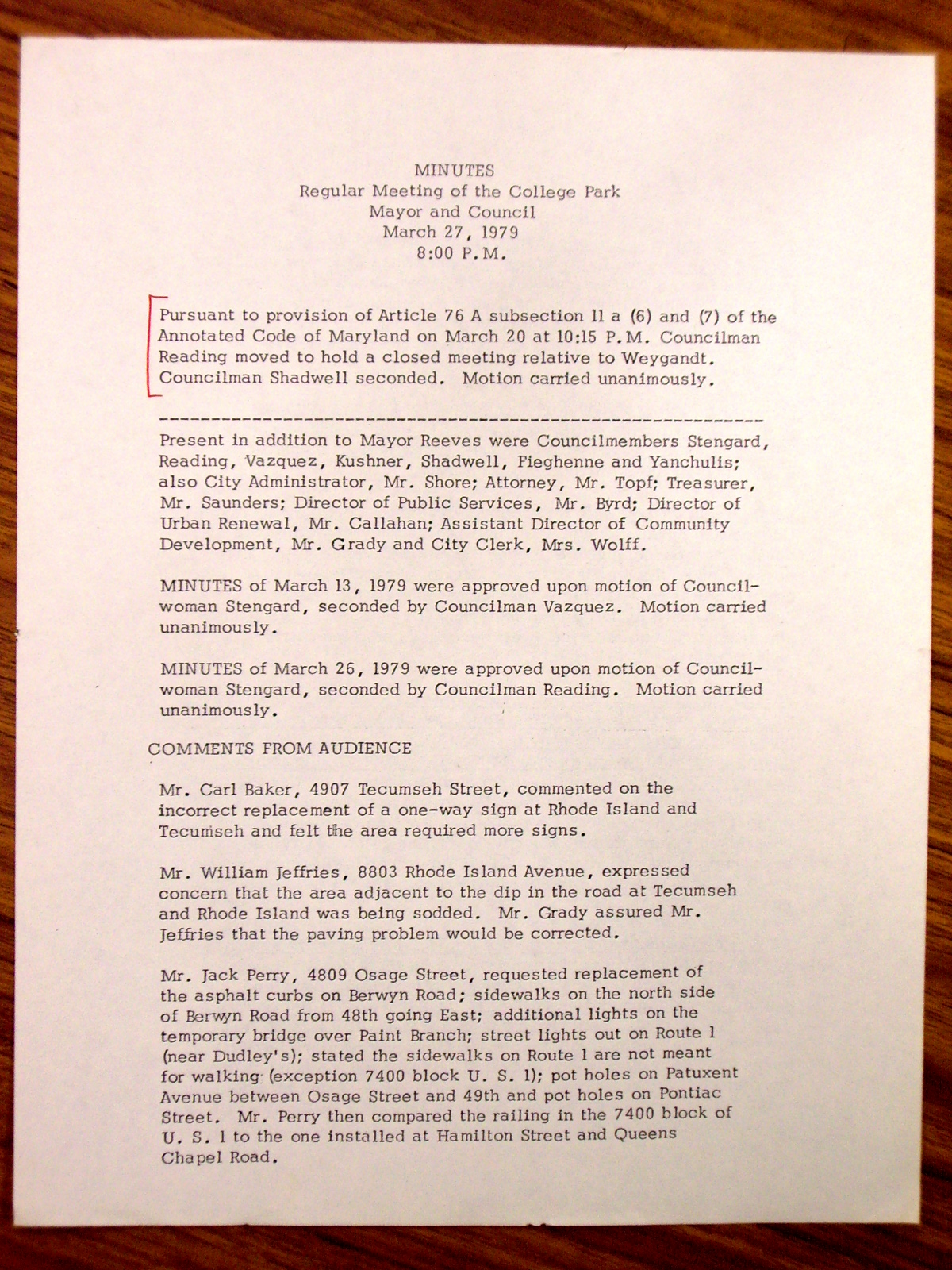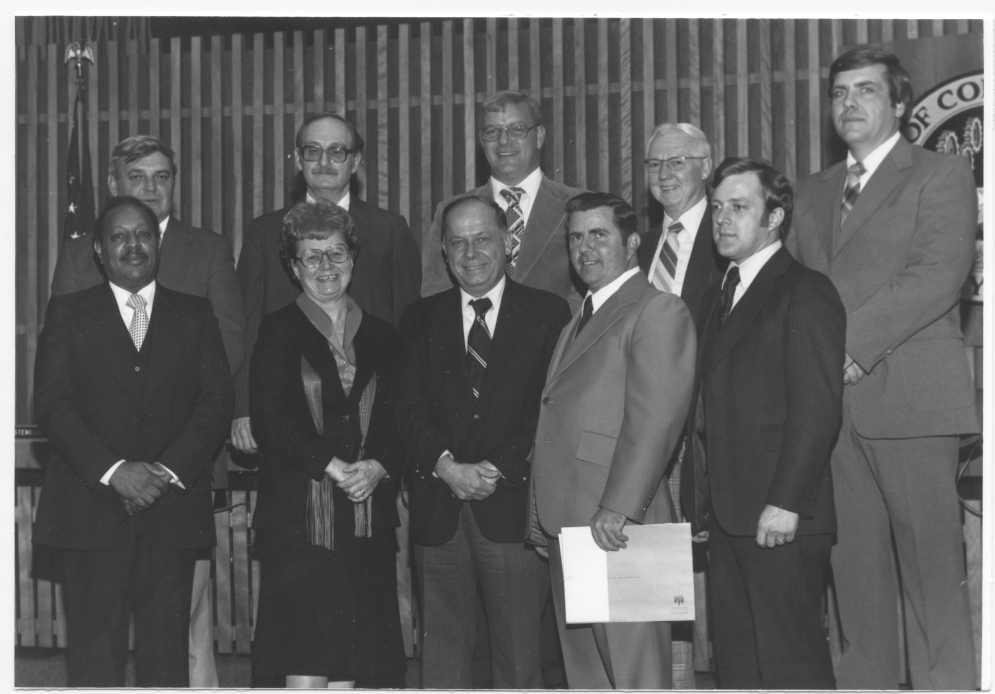Oral history with Dervy Lomax
This interview of Dervy Lomax by Neil Cohen is one of two interviews Mr. Lomax has given as part of the Lakeland Community Heritage Project's oral history archive. The interview is broken into two parts: basic biographical data about himself and his family and the impact living in Lakeland has had upon him, personally. Dervy Lomax was born December 20, 1923 in Berwyn. He became a part of the Lakeland community when he came to Lakeland for elementary school. Mr. Lomax recalls the community watching out for his wellbeing, when neighbors told his parents of his misadventures with a well/spring in an empty field on his route to school. Dervy Lomax married a woman named Thelma in 1953 at First Baptist Church in College Park. They remain married at the time of the interview. Mr. Lomax recalls competing for Thelma's hand with a man who would be the best man at Thelma and Dervy's wedding. When she felt he was taking too much time to propose, an aunt pressured him not to be too choosy or to wait too long. The couple has two sons, Gregory Lomax, born March 6, 1954 and Elson Lomax, born November 28, 1956. Mr. Lomax's parents were Etelka Johnson and Charles Lomax, both born in 1902. Etelka was born and lived in Lakeland all her life. Her parents were Blanche and Charles Johnson, of Bladensburg and Lakeland, respectively. Charles Lomax was born in Muirkirk and grew up in Berwyn Heights. His mother was Henrietta Lomax and she and her husband lived in Muirkirk. As a member of the Lakeland Community, Mr. Lomax was involved with the E.L.K.S. and American Legion, as well as being President of the County Boys Club and Serving on the City Boys Club. He is also a long-standing member of the First Baptist Church of College Park. During high school Dervy Lomax was a pitcher on the school baseball team. When he joined the Navy after graduating from high school, Mr. Lomax continued to play. Once he returned to Lakeland, he joined the community baseball team and recalls his time playing as some of the happiest times in the community. He was so talented and loved by the community that he remembers being urged to pitch in games when he was not even scheduled to play. Mr. Lomax remembers some of his most disappointing times as a member of the Lakeland community as being connected to his involvement in local politics. Starting in 1956, just after he returned from the Navy, Mr. Lomax joined Mary (Williams) Holloman in addressing the City Council about the cost of blacktop on Navahoe Street. Mr. Lomax (who was acting as spokesman for Lakeland) was asked if he was a registered voter and, because of his recent service, he was not, so his concerns were not heard by the Council. He ran for Council in 1957 and was elected. During his time serving on the council, Mr. Lomax emphasizes that he demanded respect and gave respect to his peers in return. Despite respecting one another, the Council continued to avoid addressing his concerns through their votes, whenever possible. The proudest accomplishments in Dervy Lomax's life both centered around education of Lakeland youth. First, he played a large part in getting a school in Lakeland after the old school was earmarked as a school for slow learners, a tactic often employed to remove schools for colored children. Committees of black communities were organized along the Route 1 corridor to discuss where the new school should be built, but the school board also held a non-disclosed, whites only meeting in which they decided to build the new school in Berwyn. Because Mr. Lomax was informed of this meeting by his white friends, he was able to address the school board about their misconduct when they held the official meeting in which all communities were present. As a result, the Superintendent of schools agreed that the school should be in Lakeland. Mr. Lomax also appealed to the State Board of Education for integrated schools while his oldest son was entering high school. During the appeal, colored students were being bussed to Fairmont Heights School from College Park, but Gregory was taught by a private tutor, in order to keep his education on track without compromising Mr. Lomax's appeal. The Lomax's won the appeal and Gregory was allowed to choose between Fairmont and College Park High Schools the following year. He attended College Park. The interview continues with Dervy Lomax addressing various influences in his life. He starts by sharing that religion allowed him to successfully work with the public without being negatively influenced by the lack of personal respect that often accompanied his interactions. For example, when Mr. Lomax was successful in petitioning for code enforcement in Lakeland, many of the landlords in Lakeland were unhappy with him. His faith allowed him to grapple with the dilemmas of doing what was best for his community even when members of his community were unhappy with him. Religion also allowed him to overcome the dishonesty he encountered on the City Council. Finally, religion played a role in his ability to deal with Urban Renewal. A further discussion of Urban Renewal in Lakeland will be available in a later interview, according to this recording. Dervy Lomax was also influenced by two important people in his life. Charles Johnson, his grandfather, was a politically oriented person who kept track of current events. Mr. Lomax spent time discussing these events with his grandfather and even listened to the bombing of Pearl Harbor, live on the radio, with Mr. Johnson. From this relationship, Mr. Lomax developed an interest in politics. Mr. Lomax's mother imparted on him the belief that education was important. He attributes his beliefs, "you have to be educated to do something in this world" and "If you don't have nothing up in your head, you don't have nothing in your pocket" to his mother. The subject of Urban Renewal in Lakeland is revisited again, briefly, as being the event to have caused the most significant change in the community. Mr. Lomax expresses disappointment that many families did not return to live in the new houses that were built after Urban Renewal, despite the input they had in the rebuilding process. He also expresses regret that older members of the community are now selling their homes to owners who rent them to college students. Students do not respect the community and the community is deteriorating as a result. The most important events to impact Dervy Lomax's life are his marriage of 54 years and raising his two sons. He wishes his sons would marry and run for office, following in his footsteps. He also wishes for grandchildren. When asked about special childhood memories, Mr. Lomax returns to his memories of sports in the community. During his childhood, Lakeland was divided geographically, into the Southwest, Railroad Bulldogs, and Babyland areas of the community. Teams would form according to these divisions to play all sorts of games (football, baseball, horseshoes, etc). Mr. Lomax also fondly recalls lawn parties being held by local churches and lakes freezing during the winter and being used as skating rinks for the community and the university students. Those same lakes were used for swimming during the summer. At the close of the interview, Dervy Lomax states that he hopes the community will remember him as dedicated to Lakeland and that he will continue to fight for them as long as I have breath in my body".

